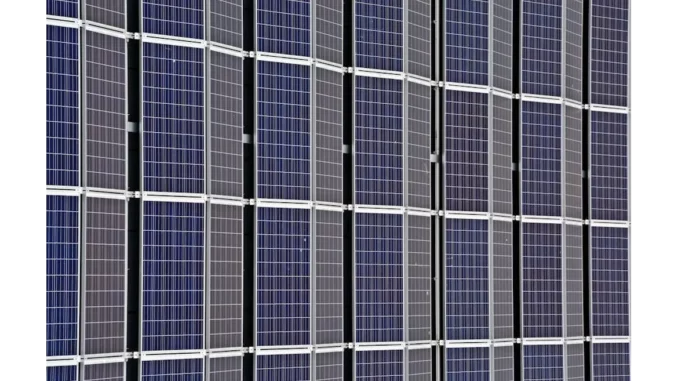
During my recent visit to Salford, I had the privilege of exploring Eden, a remarkable example of sustainable architecture and design. This £36 million venture stands as a testament to Greater Manchester’s ambitious pursuit of carbon neutrality by 2038. To gain a deeper understanding of this pioneering development, I sat down with Emma Carter, a passionate project manager who has been instrumental in bringing Eden to life.
Successful low-energy building design hinges on careful planning. Focus360 Energy can help.
Emma welcomed me with a warm smile as we settled into a sunlit corner of the building’s expansive lobby. “The vision for Eden was to craft more than just an office space,” she began. “We aimed to set a benchmark for sustainability that others would aspire to, and I believe we have accomplished that.” As we traversed the building, Emma’s enthusiasm for the project was palpable, drawing attention to various features meticulously designed to minimise environmental impact. “One of the most significant aspects of Eden is its use of natural materials,” she explained. “The façade is clad in sustainably sourced timber, which not only reduces our carbon footprint but also helps regulate the building’s temperature naturally.”
Emma highlighted the extensive solar panels that line the roof, generating a substantial portion of the building’s energy needs. “Our ambition was to achieve a high level of self-sufficiency,” she remarked, noting that any surplus energy is fed back into the grid to support the local community. The building’s interior was equally impressive. Emma guided me to a spacious office area bathed in natural light, courtesy of floor-to-ceiling windows. “Lighting is a critical component of our design,” she noted. “We maximise natural light, reducing the need for artificial lighting during daylight hours. When artificial lighting is necessary, we utilise energy-efficient LED systems that adapt based on the time of day and occupancy.”
Particularly noteworthy were the green spaces integrated throughout the building, of which Emma was especially proud. “We’ve developed a series of rooftop gardens and terraces that not only create a pleasant environment for our tenants but also bolster urban biodiversity,” she said. “These green areas help absorb rainwater, mitigate heat, and provide a habitat for local wildlife.” As we continued our tour, Emma elaborated on the various water-saving measures implemented at Eden. “We’ve installed a rainwater harvesting system,” she said, directing attention to the sleek, modern fixtures in the restrooms. “This system captures and reuses rainwater for toilets and irrigation, significantly reducing our water usage.”
One of Eden’s most innovative features is its intelligent building management system, which Emma described with enthusiasm. “The system monitors and adjusts heating, cooling, and ventilation based on current weather conditions, occupancy, and even the time of day. It’s all about using resources efficiently while maintaining comfort.” When discussing the challenges encountered during the project, Emma acknowledged, “Balancing sustainability with functionality wasn’t always straightforward. We had to ensure that everything we implemented not only benefited the environment but also met the needs of the building’s occupants.”
Emma’s commitment to fostering an inclusive environment was clear as she discussed the community engagement initiatives that accompanied the project. “We collaborated closely with local schools and organisations to educate and inspire the next generation about sustainable living,” she said. “It’s not just about this building; it’s about nurturing a broader cultural shift towards sustainability.” As our tour concluded, Emma reflected on the impact Eden is having on Salford and beyond. “I believe Eden acts as a catalyst for change,” she said thoughtfully. “It’s proof that sustainable development is not only feasible but also advantageous for everyone involved. We’re witnessing other developers take notice and start to implement similar practices, which is precisely what we hoped for.”
My visit to Eden left an indelible impression. It is a shining example of what can be achieved when innovation, sustainability, and community converge. As Greater Manchester strides towards its carbon-neutral goal, projects like Eden serve as a guiding beacon, demonstrating that a greener future is within reach. The integration of cutting-edge technology, thoughtful design, and community involvement exemplifies a comprehensive approach to modern construction, one that others would do well to emulate as the industry continues to evolve towards more sustainable practices.


Be the first to comment